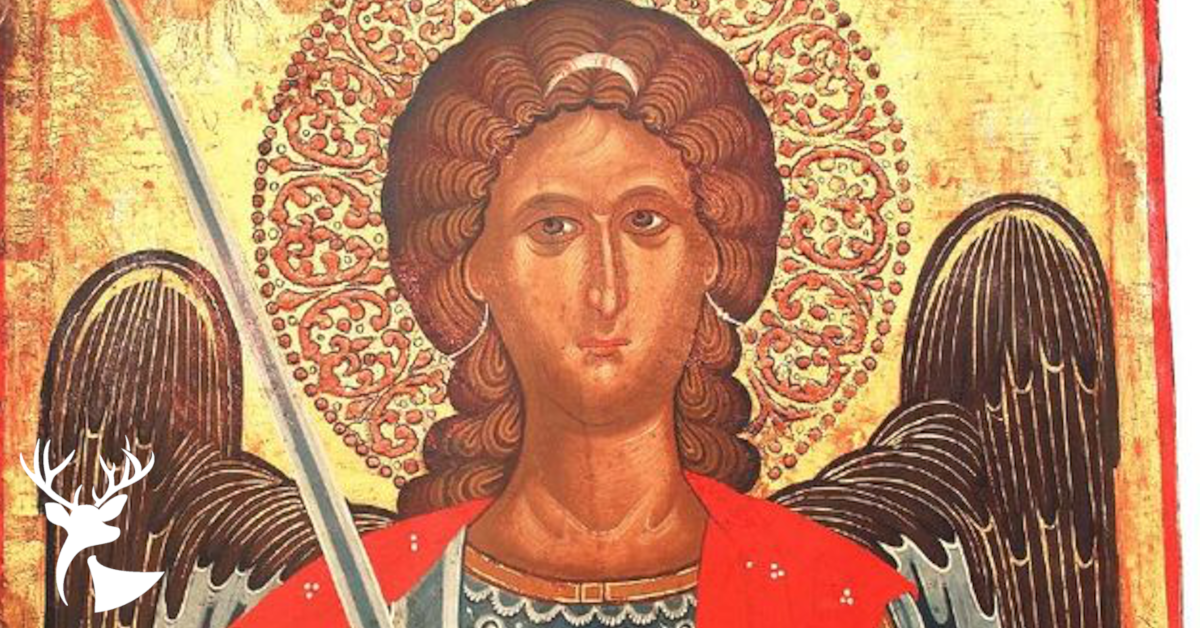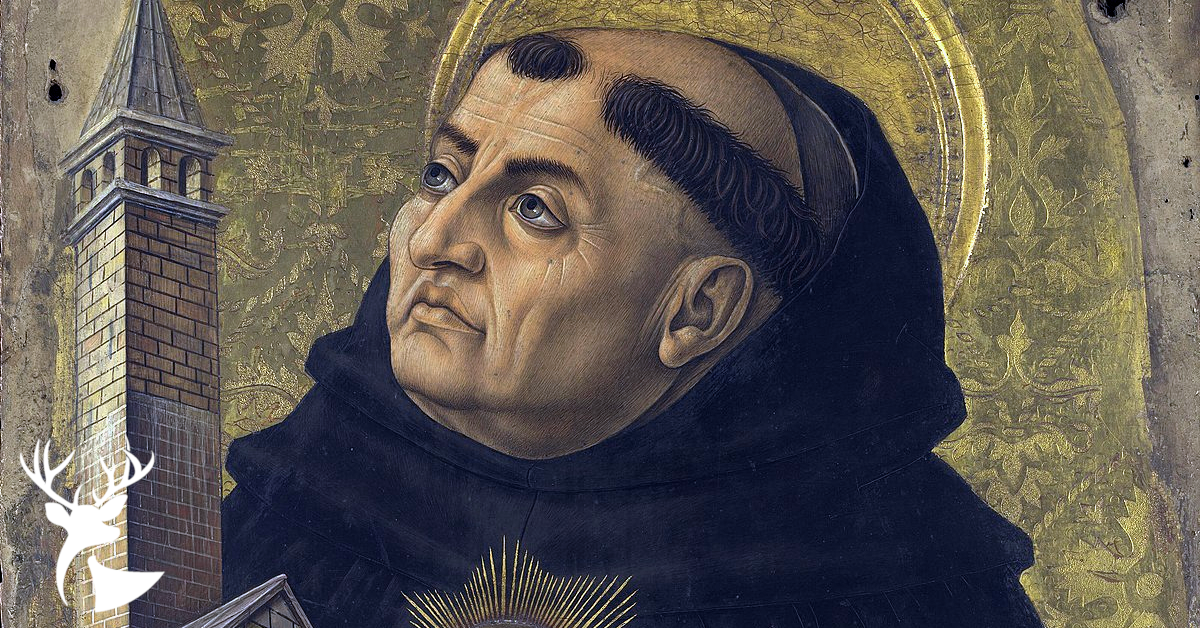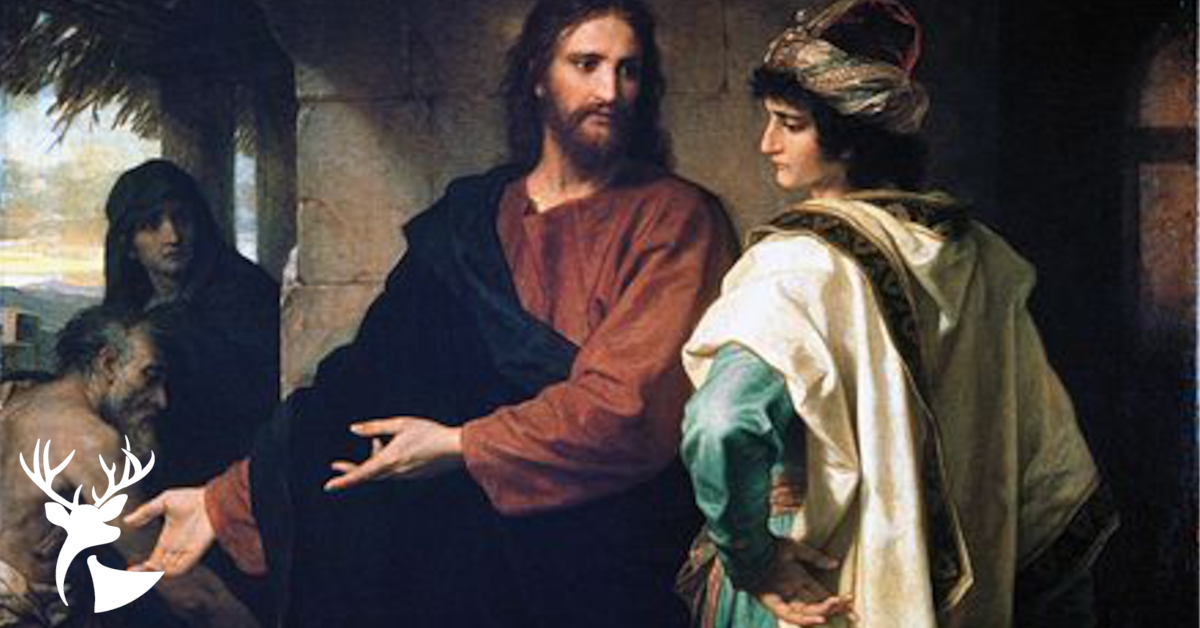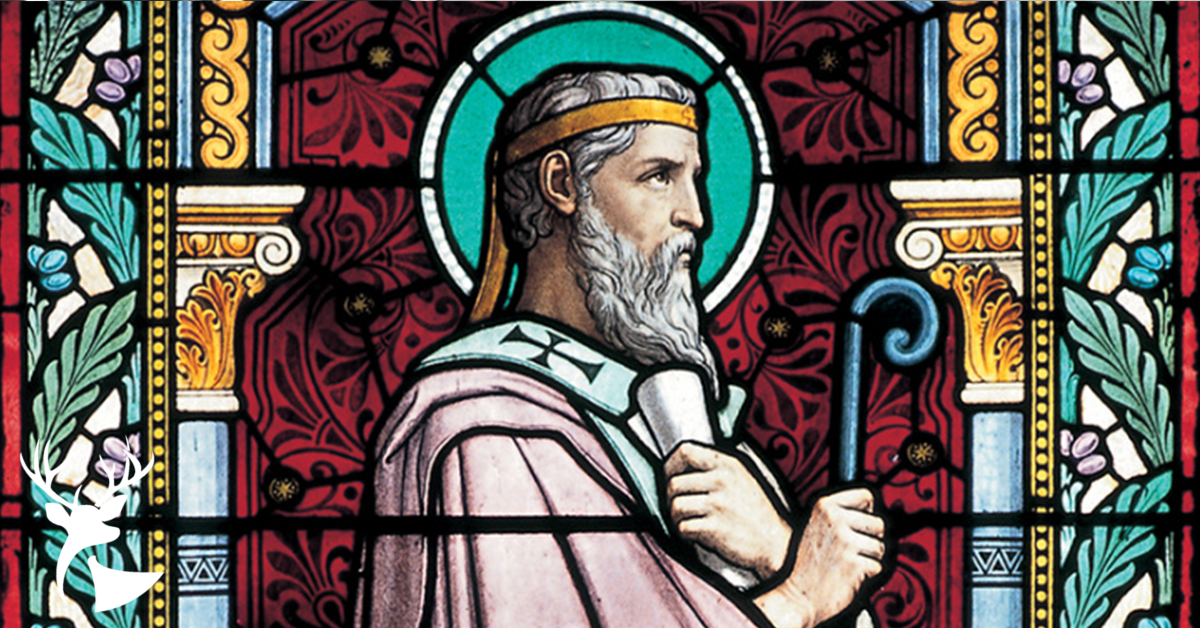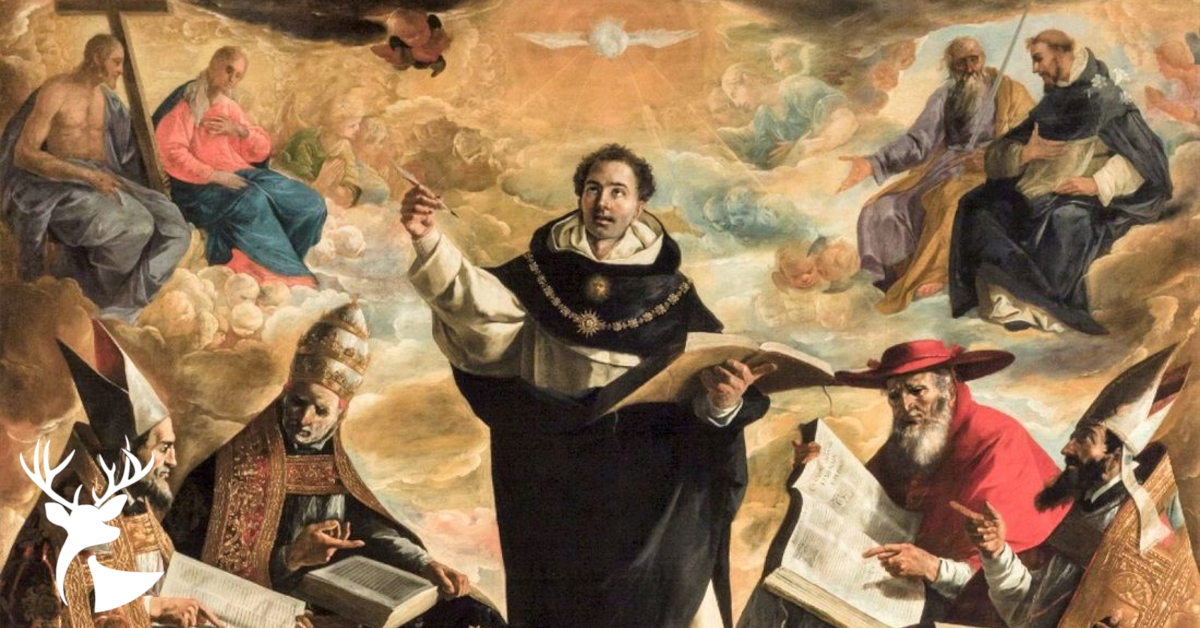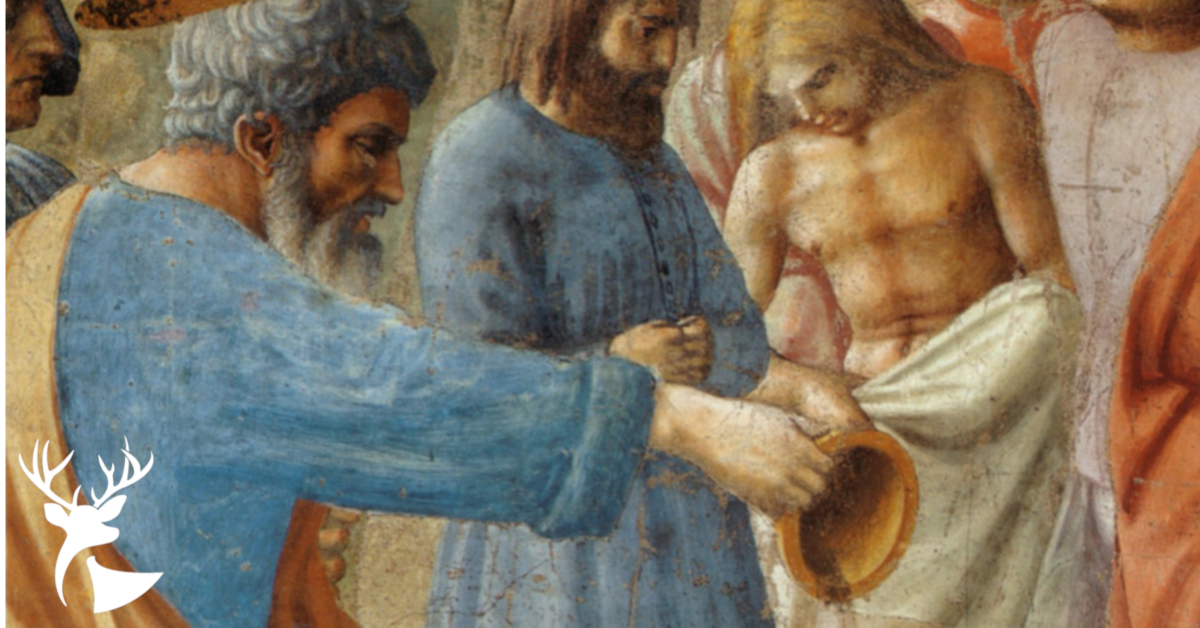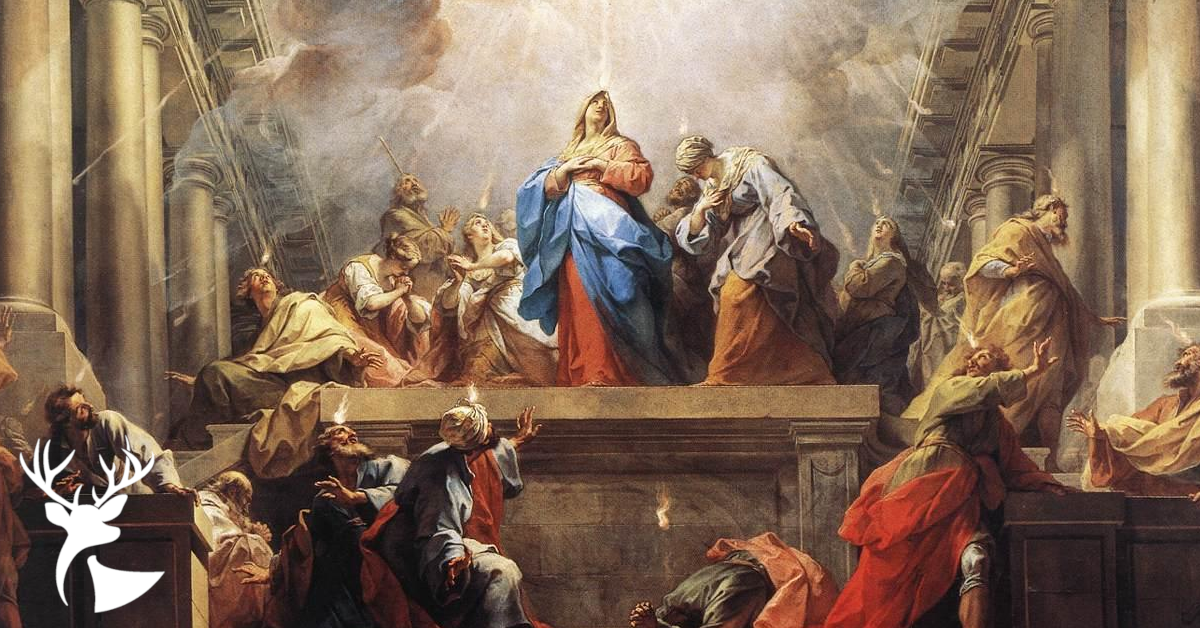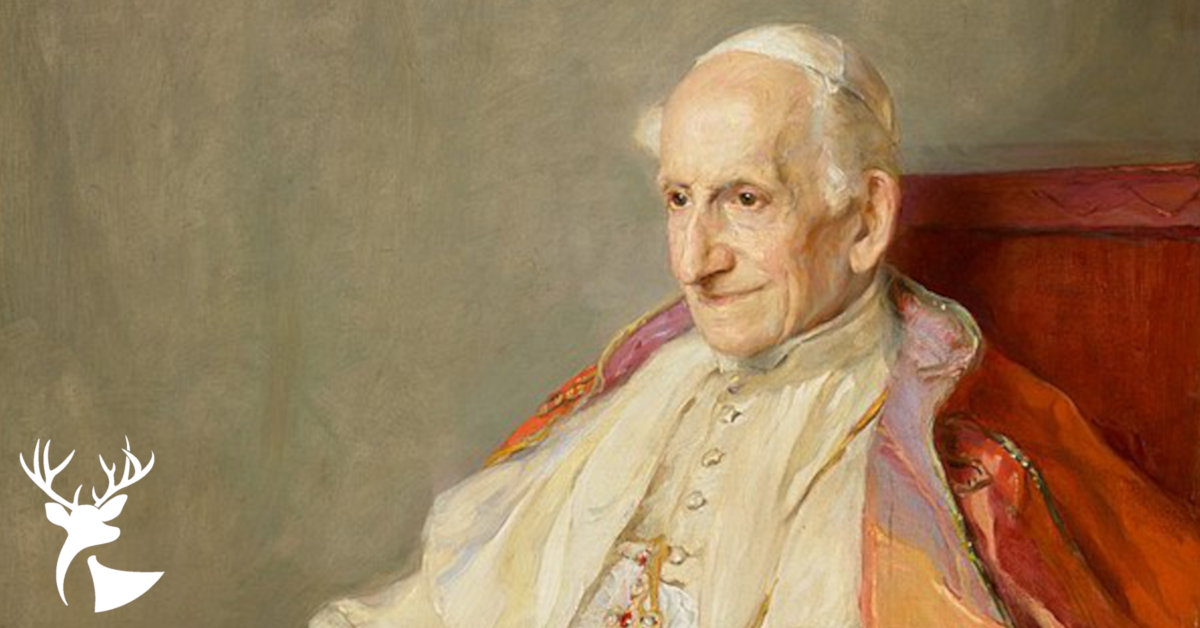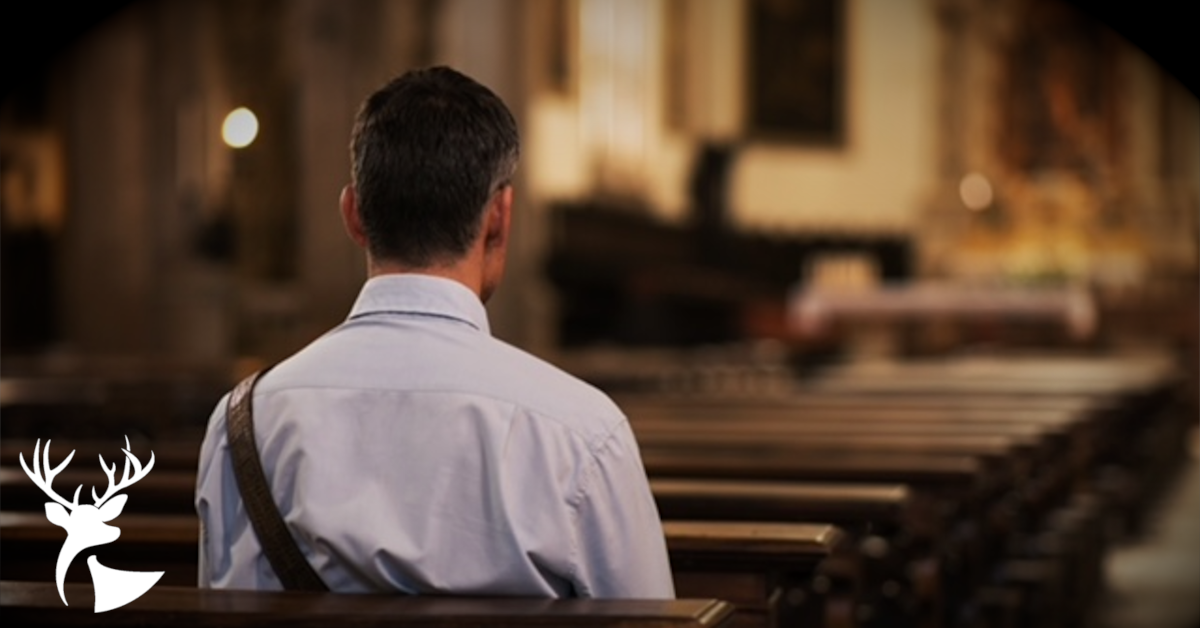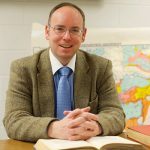
Donald Prudlo is the Warren Chair of Catholic Studies for the University of Tulsa, and is a friend and fellow tutor of the Alcuin Institute.
Donald Prudlo is the Warren Chair of Catholic Studies for the University of Tulsa, and is a friend and fellow tutor of the Alcuin Institute.
← Return to EssaysStay Connected!
Born in the late 1220s to a family of southern Italian nobility, Thomas d’Aquino seemed destined for great things. As a boy he had been sent to the powerful Benedictine abbey of Monte Cassino, perhaps with the thought that he might one day become abbot. While there he acquired the rudiments of liberal education, and pestered his teachers with the constant query, “What is God?” He would spend the rest of his life pursuing that question.
For his religious vocation, Thomas chose the intellectual young Dominican order. As this group of mendicants was dedicated to poverty, it was a choice that enraged his family. They imprisoned him in a castle for a year, trying to sway his resolve, but the steady young man simply waited, prayed, and continued his education with the books he had on hand. His family finally relented and Thomas began a meteoric rise in the academic community. A student of St. Albert the Great, Thomas straightaway entered the most esteemed school of the time, the University of Paris. He graduated and quickly became one of its most famous masters.
Later undertaking work for both the order and the papacy, he wrote with astonishing speed, depth, and clarity on the most significant theological and philosophical ideas of the age, creating a system of thought that later came to dominate in the Catholic Church. Canonized fifty years after his death, at length Thomas was named a Doctor of the Church. He is the patron of schools and teachers, and is especially known for his devotion to the virtue of chastity.
Of the many innovations and breakthroughs that Thomas made in Christian thought, one of the most fundamental was his foregrounding of the notion of ‘existence,’ or esse. Even at a young age, Thomas had become aware of the writings of Aristotle and his Arab commentators. Drawing and building upon their ideas, he wrote his fundamental text On Being and Essence while still in his mid-twenties. For Thomas, unlike for previous thinkers, the deepest mystery was not what a thing is (its “nature”), but that a thing exists at all.
The distinction Thomas makes between essence and existence is critical and novel. Essence is the abstract nature of a thing (rock, dog, human), while existence is the making of that essence actual in a concrete individual reality (this rock, Rover, Bob). Everything that is created is thus a combination of a common essence and and individual act of existence. Yet something that is composed of two distinct things does not give in itself a sufficient reason for its own existence. What brought the two things together?
In order to understand the ‘why’ of the existence of composed things, Thomas argues that there must be a “necessary existing thing,” that is, One whose very nature is to exist. This leads to his famous definition of God as the being whose essence is His existence. His being is the unlimited act of existence. In Thomas’ definition, God is the necessary being and we all are ‘contingent’ beings, whose existence comes from a separate, distinct act. In doing this, Thomas elevates the act of being into the primary philosophical category. How well Thomas’ definition accords with God’s own revelation of His name to Moses on Mt. Sinai, “I am Who am” (Ex 3:14).
From this a host of other conclusions proceeded. Because it was God who granted an act of being to everything in the universe, it follows that all such beings were good according to their nature (Gen 1:31). Everything that exists is therefore good, and to be valued according to the quality of their various perfections. This also meant that all material reality is good as well. The only evil in the universe comes from the imperfection and disorder introduced by limited, rational beings.
Thomas, following immemorial Church teaching, not only emphasized the goodness of the original material creation by God, but also stressed the reality of the incarnation, suffering, death, and bodily resurrection of Christ. God himself re-created this earthly reality by His own intimate participation in it; we are redeemed by the one who had “emptied himself, taking the form of a slave” (Phil 2:7) and had become a human baby in a manger. God had not only created the world but had physically inserted himself into it. By establishing the divine beachhead of the incarnation, grace flowed into the world, and sanctified everything it touched. Christ chose to use material elements as the necessary conduits through which to mediate his grace: water for baptism, bread and wine for the Eucharist, a physical laying of hands for orders. It is the incarnation that set Christianity upon its distinct path, one that appreciated the respective goodnesses of both spiritual and material realms.
This has particular resonance for the importance of humans in the divine plan. Not only had God endowed men and women with existence and the perfections proper to plant and animal life, but He had also bestowed reason and freedom upon them, making them into reflections of the Divine image (Gen 1:27). Thomas deserves the credit as the first thinker who robustly underscored the idea that, for an integrated human nature, the body was irreducibly essential. Not only was the body — and everything that went along with bodily life — good, but it was intrinsically necessary for an authentic human existence.
Nothing that was assumed by Jesus was not redeemed, Christ had a human body, human memory, human emotions, a human will, and a human mind. He would not have assumed such things if they were incidental to human existence. Christ was an embodied man who sang, wept, ate, became angry, and suffered. Thomas’ teaching also underscored the intrinsic centrality of the Resurrection. It was no mere party trick, a sort of physical addendum to the really important things that happened before. Rather it was the exquisitely appropriate consummation of the paschal mystery.
Christ’s possession of a complete human nature meant the absolute reaffirmation of an integrated humanity in its independent existence: the exaltation of humankind whose activities were embedded in the concrete realities of historical action. It made possible authentic Christian humanism, not to mention speeding the recognition of human dignity and human rights. Thomas defends our ability to know independently without reference to any special intervention of God, simply because of the way that same God made us. Our senses are trustworthy and our minds have the power to use their data to abstract and understand immaterial essences. Both sense and reason are ours by nature, and both are intrinsic to our completeness as substances. In a certain sense Thomas, using Aristotle, brought a new comprehensiveness to our understanding of Christian anthropology in the light of Creation and of Christ.
In this renewed commitment to a holistic vision of human nature made up essentially of body and soul together, we are able more fully to appreciate the human person. Christianity had ushered in a veritable revolution of the individual. While still necessarily embedded in community, the individual was not only created in the image and likeness of God, but also recreated and redeemed in the image of the Incarnate word. Each individual then was of infinite value, to be respected and honored no matter who he or she was. The idea of equality has become so embedded in our consciousness that we forget that it is primarily derived from the coming of Christianity. Indeed Thomas could argue that, from God’s perspective in the eternal present, we are all created in the image and likeness of Christ, for it is the Incarnation that stands at the center of human history and radiates outward.
At the heart of the western tradition is the evaluation of ‘Being.’ Because of his reorientation of philosophy and theology, Thomas has become the prophet of the goodness of existence. As G. K. Chesterton said, “If the morbid renaissance intellectual is supposed to say ‘to be or not to be, that is the question,’ then the massive medieval doctor must certainly reply in a voice of thunder, ‘To Be—that is the answer!’” There could be no more world and creation-affirming doctrine than Thomas’ teaching on existence, which is the very name and nature of God Himself.
More Reading

Donald Prudlo is the Warren Chair of Catholic Studies for the University of Tulsa, and is a friend and fellow tutor of the Alcuin Institute.


